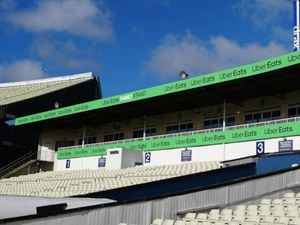999 callers 'failed' over mental health
Mentally ill patients who dial 999 are being taken to A&E instead of getting psychological support, a mental health specialist has said.

Leanne Chapman, a sergeant with West Midlands police, said when the force's mental health triage team was not on call, patients were being sent to the wrong place.
The triage team, a partnership set up between the force, West Midlands Ambulance Service and mental health colleagues, operates a car with a police officer, mental health nurse and paramedic.
Members respond to 999 calls involving people who are suffering from an emergency related to their mental health.
But the triage is only on-call at certain times during the week and when a mentally ill patient calls the emergency number outside those hours they are put through to either the police, fire or ambulance service.
As a result, those who have no physical injuries but are suffering mentally are being taken to A&E only to be sent home again.
Sergeant Chapman, a member of the triage team, said: "If you are psychotic, anxious and really, really distressed, and then you are taken to A&E, are you getting the right support?
"The mental health triage team average around 400 cases a month and operate 10am to 2am, seven days a week, and until 3am on Friday and Saturday."
One mental health sufferer, who wished to remain anonymous, said: "My mental health was deteriorating and I thought the best thing I could do was to get help.
"I phoned 999 but the operator didn't know what I was talking about.
"The more questions they were asking the more frustrated I was getting.
"They were asking me things that weren't helpful."
Desperate for help, he ended up speaking to the fire, ambulance and police, with the latter actually attending before he was taken to A&E.
The West Midlands Ambulance Service has joined growing calls for the service to be made available 24/7.
An ambulance spokesman said: "The trust has introduced a number of measures over the years which includes the triage teams, personal issue aide memories and further education for staff to assist in the management of mental health cases.
"The trust would welcome additional funding to provide 24/7 cover of the triage teams."





